Speakers
Description
Dissolution plays an important role for the oral delivery of drug products. An interdisciplinary project ModelDrug was founded by the Latvian Council of Science and deals mainly with mass transport from tablets in vitro and in silico. Depending on the dosage and aimed drug release rate, tablet structure can be modified by the addition of filler substances or other variations of morphology. Mass transport often occurs on different scales - first, by release of filler micro-particles from the tablet with further disintegration and drug release in the free flow. Theoretically, by controlling process variables, an optimal fine-tuned tablet design for particular medical cases is possible. In practice, tablet design and quality control are still time and labour-consuming tasks , poorly suited for per-patient base adjustment.
Hydrodynamics plays a critical role in mass transport simulations in related systems. Thus CFD-based methods for formulation-predictive dissolution testing of the dissolution process are becoming more popular nowadays. Predictive meta-modeling based on representative full-scaled CFD models is one of the goals of an ongoing project.
Recent project achievements include fine mass-transport simulations by using custom build OpenFOAM solver for tablet dissolution of a single component (paracetamol) in the USP2 apparatus. High Schmidt number, impeller rotation and turbulence described by the Large Eddy Simulation approach yield an additional numerical complexity. Experimental validation of simulations at different rotational speeds and tablet locations is underway. Reduction of a number of CFD model cells by the introduction of a model for concentration sublayer is considered.
Acknowledgement: Zāļu piegādes sistēmu šķīšanas profila pētīšana, lietojot hierarhisku modeļu ķēdi (ModelDrug)/Hierarchial model approach and experimental validation for typical drug discovery system dissolution profile predictions (ModelDrug) (Nr. lzp-2023/1-0078)

